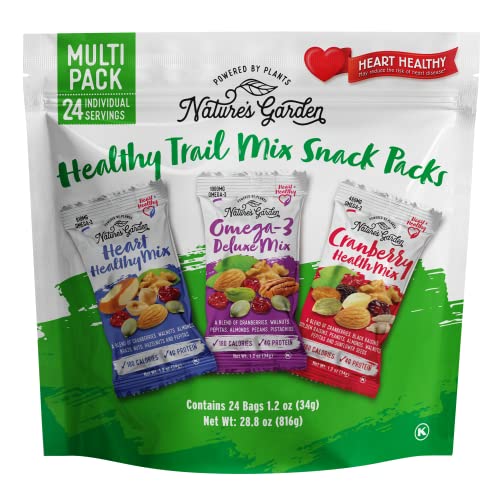Snacking is a delightful part of my day, offering a little boost between meals. But with so many options out there, I often find myself torn between organic and conventional snacks. Each choice has its own appeal, whether it’s the promise of wholesome ingredients or the comfort of familiar favorites.
Overview of Organic and Conventional Snacks
Organic snacks include products made from ingredients grown without synthetic pesticides, herbicides, or genetically modified organisms (GMOs). These snacks often feature whole foods, like nuts, fruits, and whole grains, which promote health and wellness. I appreciate how organic snacks highlight quality and sustainability while offering a more natural taste.
Conventional snacks, on the other hand, contain ingredients that may include preservatives, artificial flavors, and colors. These snacks provide a sense of nostalgia and comfort with familiar options such as potato chips and chocolate bars. Many consumers enjoy their availability and affordability.
When comparing both types of snacks, it’s essential to consider factors like nutritional value, taste, and budget. Many find organic snacks to be more nutritious, although some conventional options also provide satisfying flavors. Exploring both categories can lead to delightful discoveries and satisfying munching experiences.
Nutritional Comparison
When it comes to snacking, understanding the nutritional value of organic and conventional options is key. Both types offer distinct advantages that cater to different preferences and dietary needs.
Benefits of Organic Snacks
Organic snacks often contain higher nutritional density compared to conventional options. I find that they generally boast more vitamins, minerals, and antioxidants due to the absence of synthetic pesticides and fertilizers. For instance, organic almonds may have higher levels of vitamin E, promoting heart health. Additionally, the use of whole food ingredients in organic snacks supports overall wellness. I often enjoy trying products that feature organic fruits, nuts, and seeds, knowing they provide cleaner energy without additives.
Benefits of Conventional Snacks
Conventional snacks can shine in terms of convenience and flavor variety. Many of my favorite nostalgic treats, like classic potato chips or chocolate bars, offer familiar taste profiles that resonate with many. They also tend to be more budget-friendly, making them easily accessible for everyday snacking. Some conventional options may pack practical macronutrients—think protein bars or flavored popcorns—that fit into a busy lifestyle without sacrificing taste. When time is limited, these snacks can satisfy cravings quickly and efficiently, allowing for a delicious break during the day.
Environmental Impact
Choosing between organic and conventional snacks goes beyond just taste and nutrition. The environmental impact of how these snacks are produced significantly influences the overall quality of our food choices.
Organic Farming Practices
Organic farming prioritizes sustainability and biodiversity. Practices involve avoiding synthetic pesticides and fertilizers, which reduces soil and water pollution. Crop rotation and cover cropping enhance soil health, promoting a diverse ecosystem. Organic farms often focus on animal welfare, with livestock raised in humane conditions. This approach fosters a rich microbial community in the soil, resulting in healthier plants that require fewer resources. Studies suggest organic practices can reduce greenhouse gas emissions by up to 30%. By choosing organic snacks, I not only enjoy healthier ingredients but also support farming methods that safeguard the environment.
Conventional Farming Practices
Conventional farming relies on synthetic chemicals, resulting in higher yields but posing risks to ecosystems. Farmers use pesticides and herbicides that can contaminate water sources and harm non-target species, contributing to biodiversity loss. Soil degradation from monoculture practices diminishes health and yields over time. While conventional farming can be more efficient and cost-effective, it often emphasizes short-term gains over long-lasting sustainability. For snack lovers like me, understanding the environmental costs of conventional practices is crucial in making informed choices, as these farming methods impact the planet’s health and, in turn, our own health.
Taste and Quality
Taste and quality play pivotal roles in the organic versus conventional snack debate. Both options offer unique flavors and experiences that can enhance any snacking occasion.
Consumer Preferences
Consumer preferences often shape the snack landscape. Many people lean towards organic snacks, appreciating their natural ingredients and clean labels. They favor snacks like kale chips and almond butter, valuing their perceived health benefits. Some enjoy the zest of organic spices in their snacks, which add bold flavors sans artificial additives. Others, however, cherish the nostalgic tastes of conventional snacks. Familiar favorites like classic potato chips or candy bars often evoke cherished memories, making them hard to resist. Personal connections to certain flavors can heavily influence one’s choice of snacks.
Texture and Freshness
Texture and freshness significantly impact snacking experiences. Organic snacks usually prioritize quality, featuring fresh ingredients that offer a satisfying crunch or chew. The lack of preservatives in organic options often results in a shorter shelf life, but this usually means a fresher taste. Many organic snacks showcase vibrant colors and enticing aromas, heightening the overall sensory experience. Conversely, conventional snacks frequently employ techniques to prolong shelf life, resulting in different textures. These snacks may provide a consistent crunch, even if they sacrifice some freshness. Personal encounters with various brands highlight how texture can greatly affect overall enjoyment, making it crucial to explore options from both categories.
Price Considerations
When it comes to choosing between organic and conventional snacks, price plays a significant role. Organic snacks often cost more due to the higher standards of farming and production. Organic ingredients, like those grown without synthetic pesticides or GMOs, incur more costs during cultivation. For example, a bag of organic trail mix can cost 20-30% more than its conventional counterpart.
On the other hand, conventional snacks typically offer lower prices because manufacturers can mass-produce them using cheaper, less sustainable farming methods. A box of conventional granola bars may be available at a fraction of the cost, making them easily accessible for many consumers.
I’ve noticed that some consumers prioritize their budget over ingredient quality. They might choose conventional snacks, citing affordability as a key factor. In contrast, those committed to health and sustainability often find ways to incorporate organic options into their diets. Some stick to a budget by purchasing organic snacks in bulk or looking for sales at local health food stores.
It’s important to evaluate the long-term effects of your snack choices. Investing in organic snacks means supporting sustainable farming practices, which ultimately benefits the environment. I often encourage looking at the bigger picture: while organic snacks may cost more upfront, their health benefits and positive environmental impact can lead to savings in the long run, such as reduced health issues linked to processed foods.
Ultimately, choose options that suit your budget while aligning with your health goals. Balancing price with quality ensures that snacking remains both enjoyable and nutritious.
Conclusion
Choosing between organic and conventional snacks really boils down to personal preference and priorities. I love the idea of nourishing my body with organic options while also enjoying the comfort of my favorite conventional treats.
It’s all about balance for me. I appreciate the cleaner energy from organic snacks but also find joy in the nostalgia of classic snacks. By exploring both worlds I can savor unique flavors and make informed choices that align with my values.
Ultimately it’s about finding what works best for you and your lifestyle while enjoying the delightful journey of snacking.









